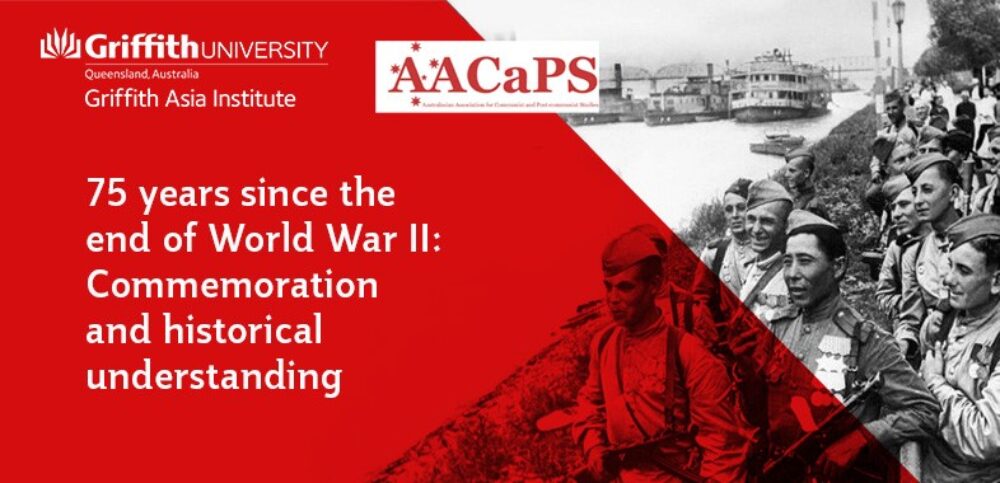Three quarters of a century have passed since the end of the most catastrophic military conflagration in human history: World War II. Paradoxically, however, the more that time passes the more we seem to remember it, in official and popular culture: commemorations, memorials, movies and books, above all in Post-Soviet Russia. Amidst the COVID-19 pandemic, commemorations of the 75th anniversaries of the German and Japanese surrenders in May and August 1945 respectively by the victorious former Western Allies were subdued affairs. In Washington, President Trump laid a wreath; in Paris, President Macron spoke in front of a near-deserted Arch de Triumphe; in locked-down London, Queen Elizabeth gave a televised address. In Moscow and Minsk, nevertheless, Presidents Putin and Lukashenko oversaw massive military parades celebrating victory in the “Great Patriotic War”.
Such official commemorations usually celebrate the virtues of nation, state and people that seemingly made victory possible. But commemoration is one thing, historical understanding is another. This raises many questions, among them: Why is it being commemorated? What was really at stake in this titanic conflict? What were its consequences? And even, did the war actually end?
This webinar, hosted by The Australasian Association for Communist and Post-Communist Studies (AACaPS), brings together experts in the field to start a conversation about these issues: Professor Mark Edele (Melbourne University), Professor Roger Markwick (Newcastle University), Associate Professor Alexey Muraviev (Curtin University) and Dr Leonid Petrov (ANU).
Speakers
Professor Roger Markwick, Conjoint Professor of Modern European History, University of Newcastle
Topic: World War II: Objectives and aftermaths
Professor Mark Edele, Hansen Chair in History, Deputy Head of School, School of Historical and Philosophical Studies (SHAPS), University of Melbourne.
Topic: The Soviet Union’s Second World Wars: History and memory
Associate Professor Alexey Muraviev, National Security and Strategic Studies, Curtin University
Topic: The Red Machine in Action: Soviet Military Power and the Allied Victory in World War Two
Adjunct Associate Professor Slobodanka Millicent Vladiv-Glover, School of Languages, Literatures, Cultures and Linguistics, Monash University
Topic: Narratives of the Victors and the Losers about WWII in the Balkans (Former Yugoslavia)
Dr Leonid Petrov, Senior Lecturer, International College of Management in Sydney (ICMS) and Visiting Fellow, Australian National University
Topic: WWII in North-east Asia: Has it really ended?








